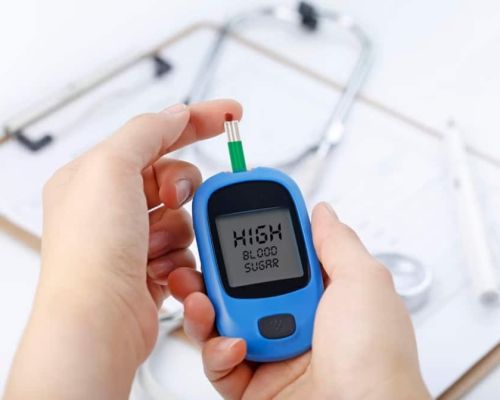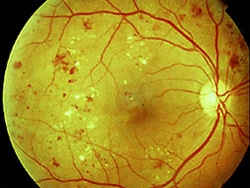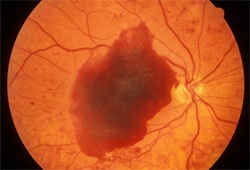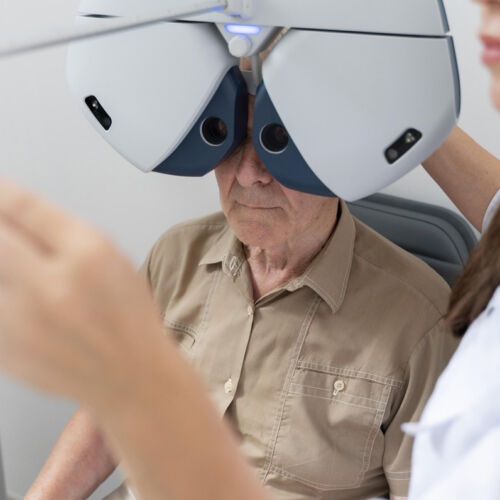Understanding the Risk Factors and Treatment Options for Diabetic Retinopathy in Singapore
Habits that increase your risk of diabetic retinopathy
Diabetic Retinopathy in Singapore
Diabetic retinopathy is an eye disease mainly caused by diabetes. According to the Singapore Eye Research Institute, diabetic retinopathy is one of the most common visual complications a diabetic person can have. Diabetes weakens the blood vessels throughout the body, including the eye. As blood vessels weaken, there is a possibility that blood vessels may burst and cause blood leakage. Another scenario is the growth of new blood vessels, which are extremely weak and prone to bursting. Diabetic retinopathy is the pooling of blood on the inside of the eye due to the bursting of weakened blood vessels. According to Healthhub Singapore, the prevalence of diabetic retinopathy in Singapore is around 35%. Of which, a higher percentage of those with the eye disease are Malays.

Poorly Controlled Diabetes
When diabetes is not well-controlled, the sugar in our blood will block blood supply going into the eye and hence cause new blood vessels to grow. However, new blood vessels are usually very weak and thus cause leakage or bleeding easily. If one has poorly controlled diabetes, it will be more common to find sugar in the blood. And if so, he/she will have a higher risk of diabetic retinopathy.
Diabetic Duration
The longer one has diabetes, the higher the chance one will have diabetic retinopathy. This is shown in the Wisconsin Epidemiologic Study of Diabetic Retinopathy where it states that ‘the prevalence of any retinopathy was 8% at 3 years, 25% at 5 years, 60% at 10 years, and 80% at 15 years’. Specifically diabetic retinopathy, it was stated that the incidence of diabetic retinopathy increased from 0% during the first 5 years of being diagnosed with diabetes to 27.9% during the 13th to 14th year of diabetes.
High cholesterol levels
High cholesterol will increase the possibility of crystal formation in the blood vessels. Crystal formation will block blood flow in the blood vessels thus increasing the chance of blood vessel breakage. This will cause blood to leak out from the blood vessels into the eye, leading to diabetic retinopathy.
Pregnancy
It remains unclear why pregnancy can increase the risk of diabetic retinopathy. It is believed that hormonal changes that occur during pregnancy cause a change in the blood flow, which in turn leads to a change in blood pressure. This change may damage the blood vessels and cause blood and other fluids to leak out of the blood vessels in the eye, resulting in diabetic retinopathy.
Diabetic Retinopathy Treatment in Singapore
There are various types of diabetic retinopathy treatment available in Singapore and they include:
- Anti-VEGF medication/injections
According to the American Academy of Ophthalmology, anti-VEGF medications such as Avastin, Eylea, and Lucentis are injected directly into the eye to help reduce the swelling of the macula, which is the part of the eye that allows us to have good central vision. When the swelling subsides, good vision should return. - Pan-Retinal photocoagulation (PRP)PRP is a laser treatment to stop blood from leaking into the eye by blocking the blood vessels. Once bleeding in the eye stops, swelling will slowly subside and some vision may return.
- Vitrectomy
Vitrectomy is the removal of the vitreous in the eye. Vitreous is a gel-like substance that holds the shape of the eye. Your retinal surgeon will suggest this diabetic retinopathy treatment when there is massive bleeding seen in the vitreous chamber or when there is an enormous amount of scarring tissue in the eye. Once the vitreous is removed, the vision may clear up as there is no matter obstructing light rays inside the eye.


Ways to Prevent Diabetic Retinopathy
- Have a healthy, balanced diet filled with fruits and vegetables. Reduce the intake of oily food such as pork belly, french fries and processed food.
- Take your medication on time if you have diabetes, hypertension or high cholesterol.
- Have a yearly comprehensive eye check.
Diabetic Eye Screening in Singapore
If you are diabetic and experiencing vision issues, it is advisable to have a diabetic eye screening in Singapore. Please contact us at +65 6694 1000 or manager@eyemax.sg should you like to see an eye doctor for the condition. For more information, visit Eye Max Centre.

References
https://www.nmrc.gov.sg/docs/default-source/events-library/diabetes-and-metabolic—ecosse-lamoureux.pdf2019
https://diabetesjournals.org/care/article/27/suppl_1/s84/24669/Retinopathy-in-Diabetes
https://www.ncbi.nlm.nih.gov/pmc/articles/PMC6259536/
https://www.nei.nih.gov/learn-about-eye-health/eye-conditions-and-diseases/diabetic-retinopathy#:~:text=Diabetes%20damages%20blood%20vessels%20all,that%20don’t%20work%20well
https://www.ncbi.nlm.nih.gov/pmc/articles/PMC9146710/
https://www.ncbi.nlm.nih.gov/pmc/articles/PMC4170393/#:~:text=
Hormonal%20changes%20in%20pregnancy%20include,progression%20of%20retinopathy%20in%20pregnancy
https://www.aao.org/eye-health/diseases/what-is-diabetic-retinopathy
